Myanmar-kelompok-etnis-mencari-cara-untuk-mengurangi-konflik-300x209.jpg" alt="(Photo: IANS)" width="355" height="247" /> Peace negotiators of the Myanmar government and ethnic armed groups, in their first day of resumed peace talks in Yangon on Tuesday, agreed to seek political ways for reducing conflict referring to the current fighting in Kokang region and Kachin state.(Photo:RNA/IANS)
Naypyitaw, 28 Jumadil Awwal 1436/19 March 2015 (MINA) – Peace negotiators of the Myanmar government and ethnic armed groups, in their first day of resumed peace talks in Yangon on Tuesday, agreed to seek political ways for reducing conflict referring to the current fighting in Kokang region and Kachin state.
Participants agreed to take lessons out of the current issues to prevent recurrence through understanding building, Xinhua news agency reported citing a press conference held at the end of the first day’s talks, Rohingya News Agency (RNA) quoted by Mi’raj Islamic News Agency (MINA) as reporting.
Sixteen ethnic armed groups’ Nationwide Ceasefire Coordination Team (NCCT) participated in the talks held at the Myanmar Peace Centre.
Peace negotiators of the Myanmar government and the ethnic armed groups resumed their formal seventh round of peace talks here on Tuesday focusing on eight remaining points out of 104 of the draft nationwide ceasefire accord left from the previous talks in a bid to push for its finalisation.
Also Read: Pakistan Condemns Israeli Settler Attacks in West Bank, Al-Aqsa Storming
Representatives of the parliament, military officials and government ministers are also participating in peace talks, set for six days
Earlier on Tuesday, U Aung Min, vice chairman of the government’s Union Peace-Making Work Committee (UPWC), said in his opening remarks that the resumed peace talks with the ethnic armed groups would strive for a draft nationwide ceasefire agreement, while calling for overcoming the outstanding issues.
U Aung Min, who is also minister at the President’s Office, told the meeting that the government was making efforts to reach the ceasefire accord aimed at building a foundation of carrying the peace process to the next term of government, creating a firm ceasefire and starting political dialogue.
He cited President U Thein Sein as saying that “ethnic conflict cannot be resolved by use of force but through political dialogue”.
He underlined that the establishment of a joint monitoring committee on ceasefire and a committee for sponsoring political dialogue was an important step of the peace process.
Also Read: China Criticizes US-Drafted UN Gaza Resolution as Vague, Abstains from Vote
Chairman of the NCCT, U Naing Han Tha, who is from the Mon ethnic group, said the recent Kachin Independence Organisation’s (KIO) meeting with the government and military leaders amid heavy conflict in northern Myanmar was a good prospect and the confidence building between them contributed to the nationwide ceasefire talks between UPWC and NCCT.
He suggested that for lasting peace, fighting in Kachin state, Ta’ang or Palaung area and Kokang region should be covered by the peace talks to help ease tension in those areas.
He also emphasised the need not to use force to resolve domestic conflicts as it could lead to chaos in the country.
Lt. Gen. Myint Soe from the No. 1 Special Operation of the military expressed the belief that if understanding on conflict reduction and ceasefire was built during the meeting between the armed forces and the KIO, peace would be achieved.
Also Read: Former Bangladesh PM Sheikh Hasina Sentenced to Death
Negotiators from the government and ethnic armed groups resumed peace talks in Yangon on Tuesday in an effort to finalise their draft ceasefire accord.
Before the resumption of the talks, Myanmar President U Thein Sein, Vice President Sai Mauk Kham and Commander-in-Chief of the Defence Service Senior-General Min Aung Hlaing met separately on Monday with a special delegation of the KIO in Nay Pyi Taw, led by general secretary La Ja and its army’s Deputy Chief of Staff Major General Guan Maw to discuss peace efforts in the country.
During that meeting, the KIO forwarded a peace proposal to the president, reaffirming its commitment to the ongoing peace process.
The sixth round of ceasefire talks, held in September last year, approved the fourth draft of the ceasefire agreement.
Ever since the 1950s and 1960s, there has been in existence of a number of ethnic armed groups in Myanmar.
Also Read: Pakistan Declares State of War After Car Bomb Incident
Since U Thein Sein’s government took office in March 2011, it has pushed the process of national reconciliation, having realised ceasefire with 14 ethnic armed groups individually out of 16 and it is now moving forward to a nationwide ceasefire and then proceed to political dialogue for firm and lasting peace.(T/P004/P3)
Mi’raj Islamic News Agency (MINA)
Also Read: Jakarta Hosts Gala Dinner for World Peace Forum Delegates





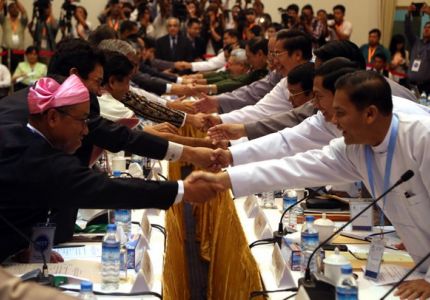

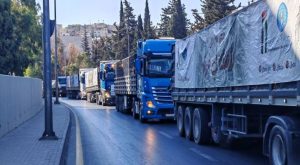
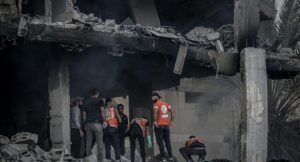


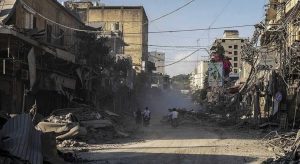
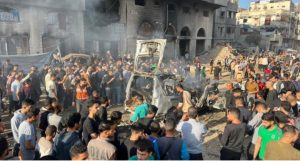

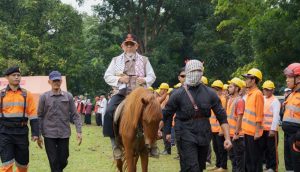
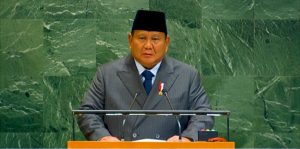
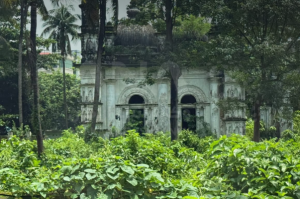
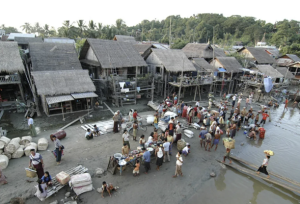

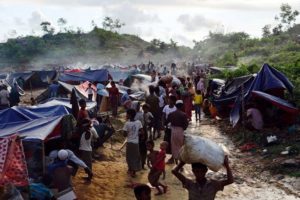
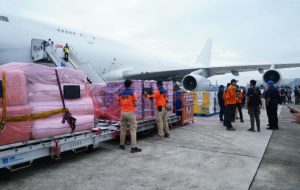







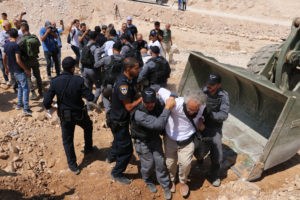






 Mina Indonesia
Mina Indonesia Mina Arabic
Mina Arabic